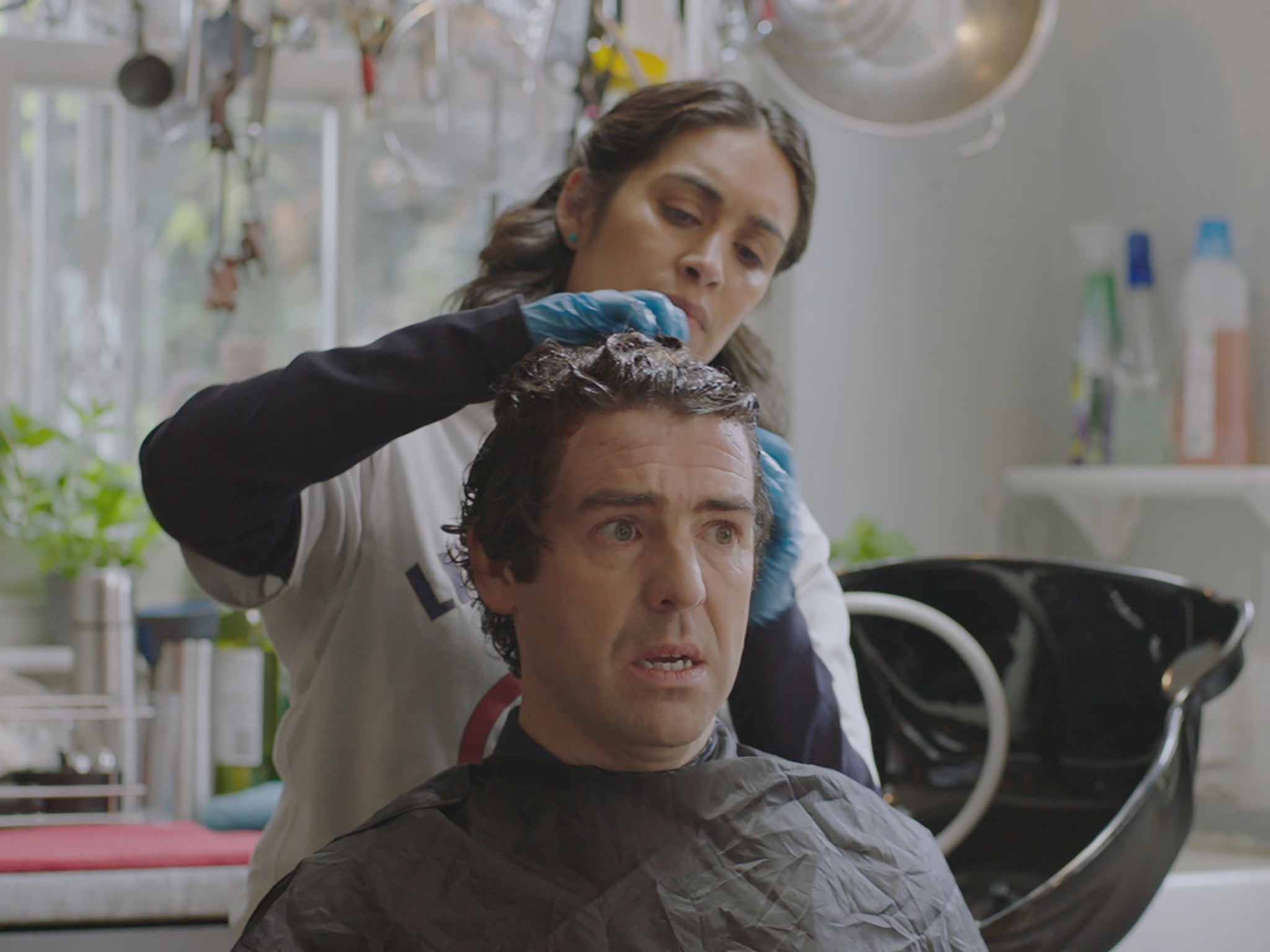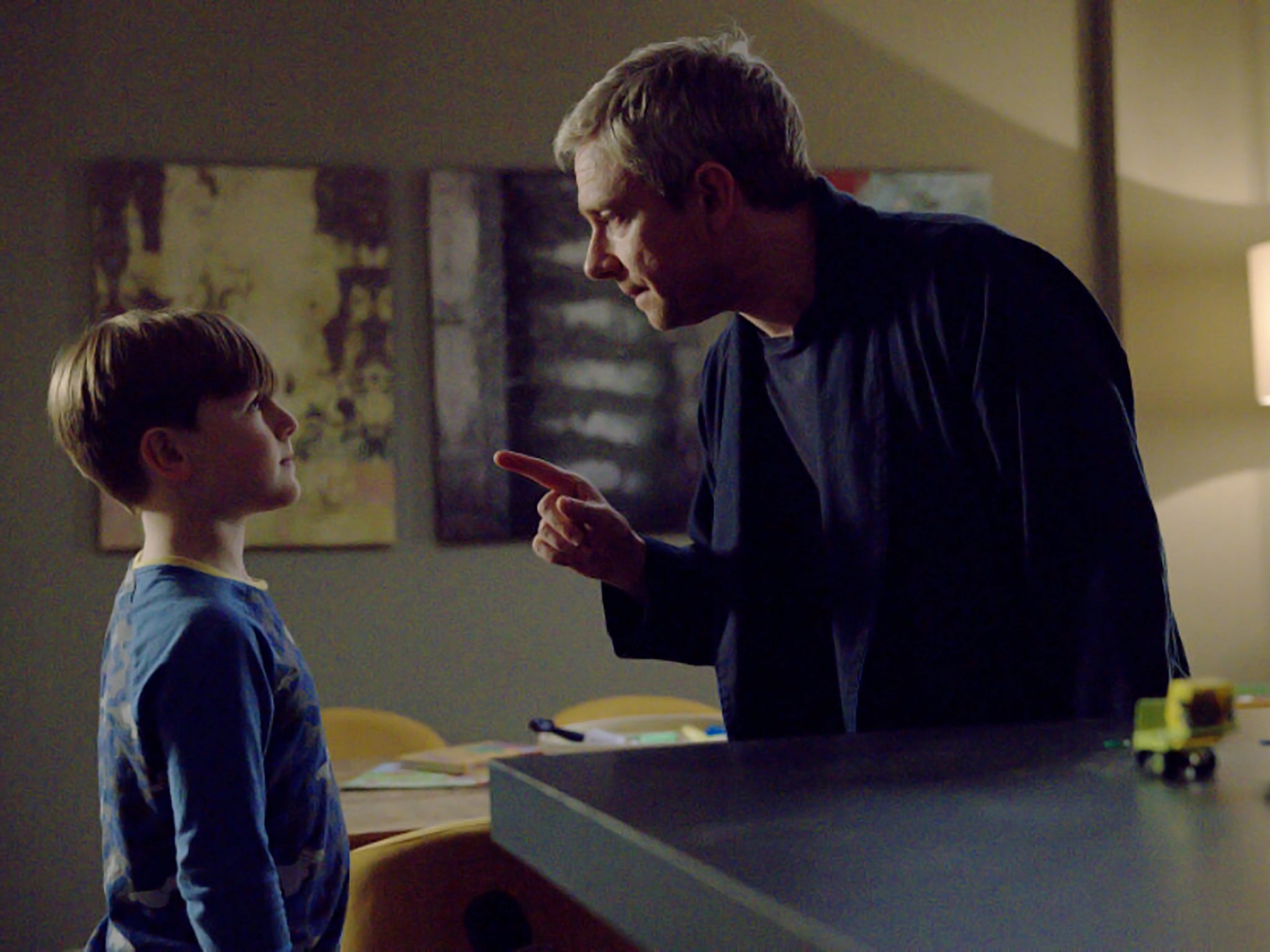I hate Kevin from Motherland – mainly because he reminds me of myself
In his brand new weekly TV column, new dad Ed Cumming examines the recent spate of parenting comedies – and how they measure up with the ones he watched growing up


Your support helps us to tell the story
From reproductive rights to climate change to Big Tech, The Independent is on the ground when the story is developing. Whether it's investigating the financials of Elon Musk's pro-Trump PAC or producing our latest documentary, 'The A Word', which shines a light on the American women fighting for reproductive rights, we know how important it is to parse out the facts from the messaging.
At such a critical moment in US history, we need reporters on the ground. Your donation allows us to keep sending journalists to speak to both sides of the story.
The Independent is trusted by Americans across the entire political spectrum. And unlike many other quality news outlets, we choose not to lock Americans out of our reporting and analysis with paywalls. We believe quality journalism should be available to everyone, paid for by those who can afford it.
Your support makes all the difference.Sharon Horgan’s comedy Motherland is back for a third series, which means a return for my least favourite parent on TV, Kevin. Played brilliantly by Paul Ready, Kevin is the male ambassador to Motherland’s mostly female schoolmate kingdom. He is a simpering, precariously married stay-at-home weed. Anxious about practically everything, he totters around on his bicycle attempting to practise a lovable-but-useless shtick. As ever with uselessness, however, it ends up not being that lovable. His attempts to get in with the alpha mums, led by the bouffant-blonde Amanda (Lucy Punch), always fail. Instead he has to make do with being friends with Julia (Anna Maxwell Martin) and Liz (Diane Morgan), who swear, grumble and moan their way through the trials of parenting.
As the freelancer in what I like to call a mixed-employment couple, I recognised early in the first season of Motherland that I am, technically speaking, the Kevin in my life. Critics have praised the series for its “on the nose” “accuracy”, so I resent this character enormously. No, I am not like him, I think, as I push my daughter to an appointment on a Tuesday morning. I don’t even own a bicycle. Were I in his shoes, I think, starting to cook dinner at 3pm on a Thursday, I would be plying Anna Maxwell Martin and Diane Morgan with lunchtime cocktails and praising their versatility and comic timing with a twinkle in my eye. Sadly I have to stop thinking these things, because there’s a bath to run. By the end of the day, as I prepare a tea from a packet decorated with a picture of a bear conked out in an armchair, I must acknowledge I’m more Kevin than I want to admit.
The other TV dad making a return this month is much more my guy. Motherland focuses on inter-family relations. The children and partners are kept in the background. Sky One’s Breeders focuses on the dynamic within a single family. Created by The Thick of It’s modest genius Simon Blackwell, it stars Daisy Haggard and Martin Freeman as Ally and Paul Worsley, whose son and daughter wind them up to the point of distraction. The characters in Motherland might be neurotic and prone to odd decisions, but they are fundamentally good parents. Most of their trouble comes in the course of trying to do the right thing by their children. The new season opens with a prolonged metaphor for coronavirus in the form of a nit outbreak. In Breeders, it’s not so simple. Paul especially suffers from anger management issues.
In the first episode of the new series, he tries to project his own adolescent interest in photography on his son, cancels his birthday and then reinstates it. He swears like a Guy Ritchie character with earache. He’s inconsistent, foul-mouthed and simmering with rage. Watching him fills me with joy. Even when I am exasperated with my daughter, for example when she has decided to sleep sideways in the bed – proddy little feet in one of our ribcages, fossil-hard skull in the other – I think: I am less bad than that guy.
I feel lucky to be a new parent at a time of such nuance and sophistication in TV parenting. When I was a child the role models were more limited. As in so many things, The Simpsons cast a long, dome-headed shadow over the 1990s. Compared to Marge, Homer was a dunderheaded wage slave. His only consistent contribution to family life was his salary. It is a recurring joke that whenever Marge takes on a job, she instantly excels at it. In most respects, Homer was like a massive fourth child for his wife to correct, cajole and admonish. Family Guy, and countless other series, aped this dynamic. At the time, I expect it felt like a shortcut to feminism – a way to give the women moral and intellectual authority when their professional prospects were so limited. Seen from 2021, it is reductive. If the series began as a relatable vision of American life, it is increasingly a period piece.
I loved Malcolm in the Middle, and to a lesser extent the inferior My Family, because they showed middle-class families could be chaotic and argumentative while remaining fundamentally loving. It was literally there in the theme song: you’re not the boss of me now. As a teenager, I thought the lyric referred to Malcolm and his brothers’ rage against their parents. At 34, I see it as a parent’s 2am cry for help with a baby who has decided to keep the hours of a bat. Outnumbered continued the trend, painting such a realistic depiction of family life in Chiswick that its mother and father, Claire Skinner and Hugh Dennis, ended up getting together in real life.

A more open-minded view of parenting widens the scope of the stories that can be told, too. Although Modern Family has rightly been praised for normalising same-sex parenting, its liberal dad Phil Dunphy (Ty Burrell) is arguably as radical a figure. He ought to be a stiff-shirted corporate type, but in fact he is sentimental and caring to the point of smothering: modern to a fault. In another era, Schitt’s Creek’s fallen mogul Johnny Rose (Eugene Levy) would have been an obvious candidate to be an out-of-touch old patriarch. Instead he is sensitive and adaptable, adjusting not only to his new financial situation but his family’s evolving identity. Horgan’s earlier work, Catastrophe, was another example of realistic adults doing their best with the hand they’d been dealt. A second series of Trying, an Apple TV+ grower with Rafe Spall and Esther Smith as a couple navigating the adoption process, begins this week. At the end of last year, Pandemonium explored the nightmare of managing a family holiday in lockdown.
There’s no joy in watching objectively terrible parenting, just as there’s nothing to be gained from watching flawless goody two-shoes. I can learn nothing from Tywin Lannister that will be relevant at my daughter’s baby swimming class, just as I can pick up no tips from the Waltons. Every parent knows from the schoolgates that the best type of other parent is the one who is like you, except subtly worse. It’s a wonderful sensation in real life, and great to watch on TV.



Join our commenting forum
Join thought-provoking conversations, follow other Independent readers and see their replies
Comments